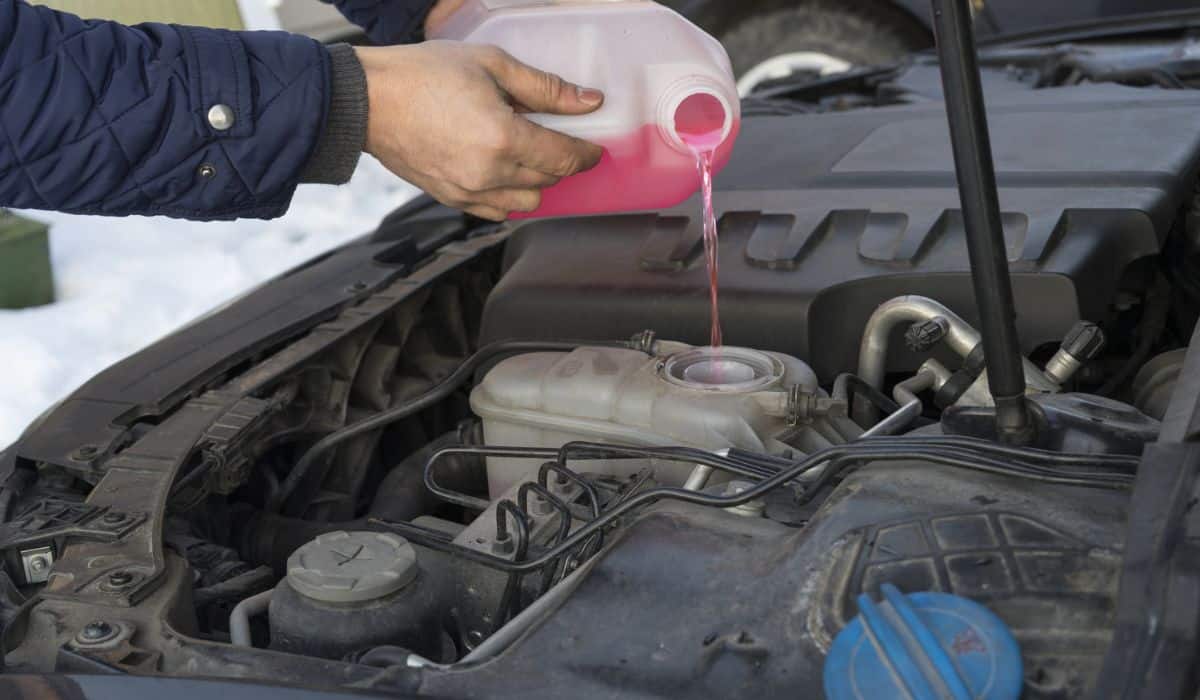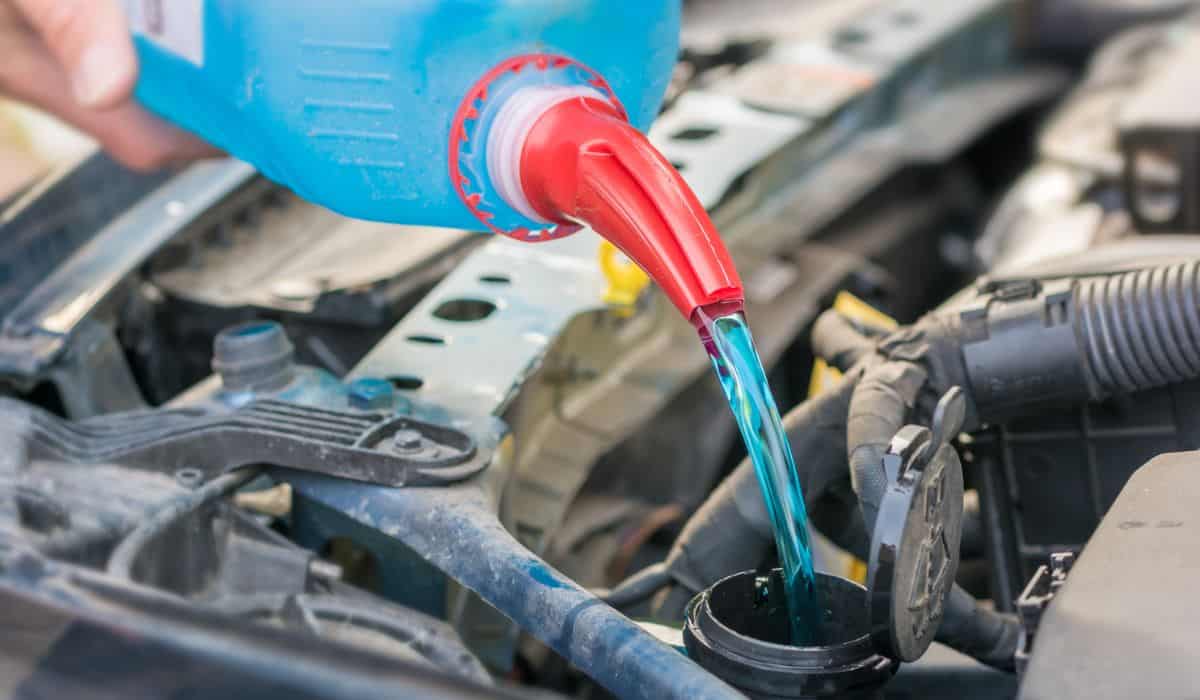Is Antifreeze Hazardous Waste? And How To Dispose Of It Safely
Antifreeze is a solution used to ensure that car engines perform well in cold temperatures. But antifreeze contains chemicals and is often contaminated with debris, heavy metal, and lead, so how can you dispose of it safely?
Antifreeze is a hazardous waste because it contains substances like propylene glycol and ethylene glycol, which can be lethal to humans. According to the EPA, recycling old or tainted antifreeze is the best way to protect the environment. Take used antifreeze to a recycling center for disposal.
Let’s take a closer look at why antifreeze is considered a hazardous waste, how to check state regulations for its disposal, and what precautions you can take to dispose of it in a safe manner.
Is Antifreeze a Hazardous Waste?

Antifreeze is a coolant that’s used in vehicles to lubricate the moving parts in cold temperatures. It’s a solution made from dangerous substances such as propylene glycol or ethylene glycol, both of which are harmful to people, animals, and plants.
If someone comes into contact with the waste of ethylene glycol antifreeze, it can harm the skin, eyes, kidneys, and respiratory system. If this compound is digested, it can even lead to death.
Though propylene glycol antifreeze is less hazardous than ethylene glycol, its waste is still toxic. Propylene glycol antifreeze isn’t harmful in small quantities; however if ingested in large quantities, it can also be lethal.
Unfortunately, there are no federal regulations that classify antifreeze as a harmful liquid waste. Nonetheless, certain states follow the classification of the United States Environmental Protection Agency (EPA) and consider antifreeze to be hazardous waste.
These states have imposed recycling laws to protect the environment from old and tainted antifreeze.
How Do I Know What My State’s Regulations Are?
The EPA has proposed rules and regulations for the management and disposal of tainted or old antifreeze. Though there’s no federal law that enforces these rules, the EPA suggestions are taken into account at the state level.
Each state has its own rules that are specific to antifreeze disposal or have hazardous material recycling regulations. You can easily access the antifreeze usage and disposal guidelines specific to your state on the internet.
All industries that manufacture antifreeze need to follow their state-specific regulations for proper antifreeze production and disposal. Similarly, these environmental protection rules are also applicable to vehicle owners who may need to dispose of antifreeze.
According to the EPA, all 50 states should enact antifreeze recycling laws for environment protection. Unfortunately, some states don’t comply with these suggestions due to lack of federal regulations, which is why antifreeze waste in certain states is sometimes discharged in the city’s sewer, incinerated, or poured in landfills.
So, even if your state doesn’t have antifreeze recycling laws, it’s best that you search for commercial centers that have adequate equipment for recycling antifreeze in your neighborhood.
How to Safely Dispose of Antifreeze

Used or expired antifreeze can be extremely hazardous for the environment, which is why it’s important to dispose of this waste properly. You should never make the mistake of pouring antifreeze down the drain, on the ground, or into a water stream because it’ll just cause damage to the environment.
Antifreeze is a highly toxic coolant that will pollute the ground, water, and plants if it’s left in the open. So, there’s no room for carelessness when it comes to getting rid of used antifreeze.
Moreover, just dumping the used antifreeze in a container or a waste bin doesn’t get the job done either. That’s because you still need to make sure that these containers are in a safe place; otherwise, someone might come into contact with the chemicals accidentally.
The following are some precautions you need to follow to dispose of antifreeze safely:
Recycling
The ideal way of disposing of antifreeze is to recycle it. When you change antifreeze from your vehicle’s generator, you need to pour the used antifreeze into a container.
Then, carry this container safely to a local automobile store, a service station, or a recycling center for automobile components.
All these facilities are typically willing to accept used antifreeze from vehicle owners so that it can be disposed of it properly.
Separate Storage
Understanding the difference between old antifreeze and tainted antifreeze is important. Old antifreeze is exchanged with a new one merely because it’s not useful anymore. On the other hand, tainted antifreeze has heavy metal, debris, or dirt in it, which is why it needs to be taken out of the car.
Many local automobile shops accept old antifreeze for disposal, but they may not have the appropriate equipment for recycling tainted antifreeze.
So, if you have tainted antifreeze in a container, you probably need to take it to a commercial recycling center for disposal.
Protection Measures
When getting rid of used antifreeze, it’s best to work in an area with proper ventilation. While pouring used antifreeze into a container, you need to protect your skin from exposure. Wear thick clothes and gloves while changing the antifreeze so that the toxic waste doesn’t burn your skin.
To prevent any spray or droplets from getting into your eyes, you need to wear safety goggles (on Amazon).
If antifreeze does get in contact with any part of your body, such as the eyes or skin, wash it immediately. Keep your children and pets as far away from this toxic coolant as possible.
Furthermore, you don’t need to take the containers full of antifreeze waste to a recycling center by yourself. You can call a waste hauler to pick it up for you.
